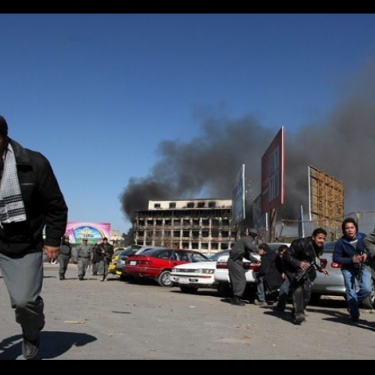Afghan and international journalists organisations, including RSF call on the UN Security Council to protect journalists in Afghanistan.

Afghan Journalists Safety Committee (AJSC), International Media Support (IMS) and Reporters Without Borders (RSF) endorse the letter by Afghanistan’s journalist community and call on the UN Security Council to take serious actions to reduce violence against journalists in Afghanistan.
In a letter to the UN Security Council on November 18, 2020, Afghanistan’s journalist community addressed the concerns of journalists and media regarding the growing violence and threats against journalists, urging the Council to take serious actions to reduce violence and pressure the perpetrators to cease targeting journalists. The letter was submitted to the UNAMA (United Nations Assistance Mission in Afghanistan) office in Kabul.
The three journalist/media support organizations also stress that without respecting fundamental international covenants, commitments and international human rights, and above all the Geneva Conventions that treat media and journalists as protected civilian entities and individuals that are meant to be immune from military attack, peace talks are unreasonable and untenable. Accepting international commitments requires ensuring the security of journalists and the cessation of violence against them. Afghan media and journalists do not deserve to become helpless due to the silence of the international institutions and its highest body, the United Nations.
Press freedom and the expansion of the media landscape is one of the most significant achievements of Afghanistan in the last two decades. Unfortunately, given the country’s political and security challenges, this achievement is extremely vulnerable. There are serious concerns that with the escalation of insecurity and conflict, this achievement would perish. Despite Afghan journalists’ courage and dedication to continue their profession, the rise of threats and violence against them is shrinking the environment.
Since 2001, media personnel have repeatedly paid a high prize in Afghanistan, as was seen yet again on 10 December when gunmen killed Malalai Maiwand, a journalist with Enekaas TV and member of the Centre for the Protection of Afghan Women Journalists (CPAWJ), and her driver, Taher Khan, in the eastern city of Jalalabad. At least 100 journalists – 16 of them foreign journalists – have been killed while more than 60 media outlets have been destroyed or attacked. Journalists and media have also been the target of hundreds of threats. The Taliban and Islamic State are responsible for most of the murders of journalists and attacks on media outlets.
Under Afghan law, ensuring the security of journalists and media outlets is a fundamental responsibility of the government. Although efforts have been made by the Afghan government, these have not been sufficient in preventing crimes, and prosecuting the perpetrators of violence against journalists. The lack of serious and meaningful efforts by governmental institutions to pursue cases of violence against journalists, the complexity of the ongoing war, the government’s fledgling and weak structure and the infliction of a large amount of violence and threats by the opposition armed groups are among the factors that give rise to the need for support of international institutions in fighting the crimes against journalists among many other areas.
Therefore, Afghan Journalists Safety Committee, International Media Support (IMS) and Reporters Without Borders (RSF) call on UN Security Council to support the media community in decreasing violence against journalists in accordance with UN Security Council Resolution 1738 (December 23, 2006) and UN General Assembly Resolution (November 26, 2013) which are the mainstay of defending the journalists’ rights in conflicts and warzones. The three institutions believe that violence benefits from the culture of impunity. Ensuring justice for victims is an effective step towards supporting press freedom in Afghanistan and reducing violence against journalists. The three organizations also declare their readiness to cooperate with international institutions regarding the promotion of safety for journalists.
Afghanistan is ranked 122nd out of 180 countries in RSF's 2020 World Press Freedom Index.



